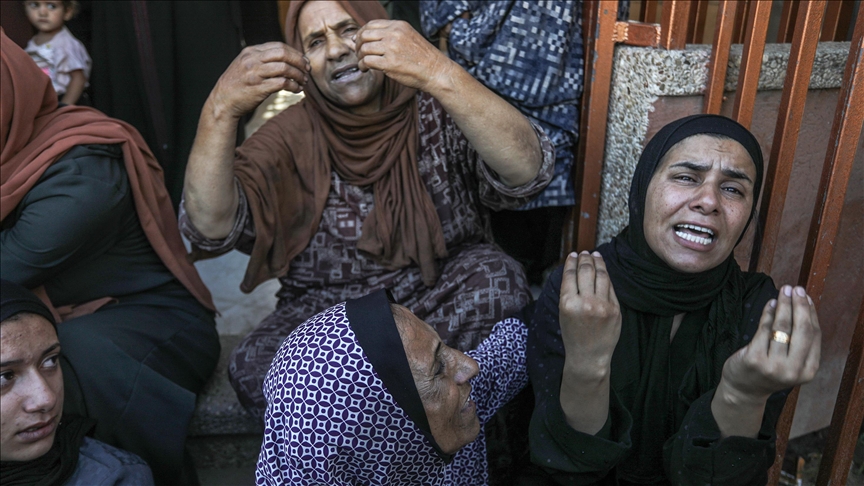Evidence pointing to genocide in Gaza overwhelming, says ex-war crimes prosecutor
Graham Blewitt likens ongoing genocide in Gaza to 1995 Srebrenica massacre
 Relatives of Palestinian Red Crescent employee, who lost his life following the Israeli attack on the Palestinian Red Crescent building, mourn as the body is brought to Nasser Hospital for funeral process in Khan Yunis, Gaza on August 3, 2025.
Relatives of Palestinian Red Crescent employee, who lost his life following the Israeli attack on the Palestinian Red Crescent building, mourn as the body is brought to Nasser Hospital for funeral process in Khan Yunis, Gaza on August 3, 2025.
ANKARA
A former deputy prosecutor at the International Criminal Tribunal for the former Yugoslavia said the amount of evidence pointing to genocide in Gaza is overwhelming and likened the situation to the 1995 Srebrenica massacre.
Graham Blewitt, who helped prosecute war crimes in the Balkans and Nazi crimes in Australia, said in a recent interview with Australian broadcaster SBS News that if he were working in the International Criminal Court today, he would have “no hesitation in bringing an indictment against the Israeli leaders for genocide.”
Blewitt said the mass killings in Srebrenica, where over 8,000 Muslim men and boys were murdered and buried in 570 sites — including 77 mass graves — was once deemed a “clear-cut genocide” due to the perpetrators’ intent to destroy a targeted group in whole or in part.
He said the same standard may apply to Gaza.
“There’s no direct evidence apart from comments made by various Israeli leaders from time to time suggesting that they just want to wipe the Palestinians from the face of the Earth,” he said.
Blewitt added that the Israeli air campaign has shown a disturbing lack of proportionality.
“They’ll bomb a building and say they’re after a particular Hamas leader and not worry about the 30, 40, 50, 100 people in close proximity who are killed or injured as a result of that strike,” he said.
Unlike in the 1990s, today’s digital age has created a vast archive of visual documentation.
“Now anyone with a phone can record what’s happening, and there’s no end of evidence for those investigating what’s happening in Gaza,” he said.
However, he also warned that investigators currently lack access to Gaza to collect physical evidence or inspect crime scenes on the ground.
- Interference with justice
Blewitt also raised concerns over global political efforts to shield Israeli leaders from prosecution.
He criticized US President Donald Trump’s February executive order that sanctioned ICC staff after the court issued arrest warrants for Israeli officials, including Prime Minister Benjamin Netanyahu.
He described it as “an appalling situation” that undermines international justice and could lead some political leaders to be held in contempt.
Blewitt said the situation has left him deeply frustrated.
“I used to be quite optimistic about the capacity of international institutions to hold war criminals accountable,” he said. “Now, I’m not so sure.”
His remarks come as the International Court of Justice continues to examine a case brought by South Africa, which accuses Israel of committing genocide in Gaza. The case has placed Israel’s conduct under intensifying legal scrutiny.
*Writing by Aamir Latif








